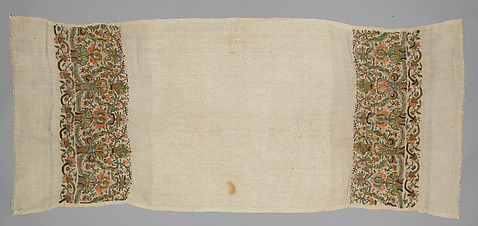We've all heard the stories about the 19th century person who could be smelt before they were seen and how they only took a bath once a week. Stories of water so dirty that the baby would get lost in (hence the saying don't throw the baby out with the bath water). Or of water being shared by multiple family members.
Original bathtub from the 1860's. It currently resides in the collection at the Smithsonian museum
In Peterson's magazine Vol 45-46 pg.114
"To be sure our transient home was blessed with some of the modern improvements, including a bath; but the water had to be pumped up two stories, employing the coachman's time during the entire day'; and, as the well was low on account of the dry season, there was scarcely enough for domestic purposes. I decided it "wouldn't pay," and so came to consider a bath an especial luxury, to be enjoyed only at rare intervals." The story continues that the main character would travel several hours to a local lake and the troubles he went through for just a bath.

Metropolitan Museum Collection, bath towel from the 19th century.
Beadle and Dime's book of Ladies Etiquette 1859, pg 24
"Frequent baths are absolutely necessary, and still more, frequent foot-baths, with tepid water and soap; for the dust that one acquires in walking, changes its name at the end of three days, and in making a call, your friends will be aware of your presence before they have seen you. Let your hat and clothes be carefully brushed...Perfect cleanliness in all things gives one a feeling of self-respect. It not only affords an agreeable sensation of comfort, but imparts an air of confidence, springing from the consciousness that you need not fear the investigations or ridicule of any who approach you. It will procure you an acquittal for many little defects of heart, or mind, or temper, and win you respect where you may least expect to make a favorable impression."
Godey's Magazine V 60 page 464,
" once a week is often enough for a decent white man to wash himself all over, and whether in summer or winter, that ought to be done with soap, warm water, and a hog's hair rush, in a room showing at least 70 Fahrenheit. If a man is a pig in his nature, then no amount of washing will keep him clean, inside or out. Such a one needs a bath every time he turns around. He can do nothing neatly. Baths should be taken early in the morning for it is then that the system possesses the power of reaction in the highest degree. Any kind of bath is dangerous soon after a meal, or soon after fatiguing exercise. No man or woman should take a bath at the close of the day, unless by the advice of the family physician. Many a man, in attempting to cheat is doctor out of a fee, has cheated himself out of his life; aye, it is done every day. The safest mode of a cold bath is a plunge into a river, the safest time is instantly after getting up. The excessive effort of swimming to shore compels a reaction, and the effect is delightful... The best, safest, cheapest, and most universally accessible mode of keeping the surface of the body clean, besides the once a week washing, with soap, warm water, and hog's hair brush is as follows: Soon as you get out of bed in the morning, wash your face, hands, neck, and breast; then into the same basin of water, put both feet at once, for about a minute,rubbing them briskly all the time; then with the towel, which has been dampened by wiping the face, feet, etc. wipe the whole body well, fast and hard,mouth shut, breast projecting. Let the whole thing be done in a matter of minutes... That precautions are necessary, in connection with the bath-room; is impressively signified in the death of an American lady of refinement and position, lately, after taking a bath, soon after dinner; of Surgeon Hume, while alone, in a warm bath; and of an eminent New Yorker, under similar circumstances all within a year."
"Practice drinking freely of water, daily Bathing, according to the strength, and the means of renovating general health"

Of course bathing is up to the individual but it seems like those from the civil war era at least had sound advice on how often to bath. My theory is that the women's magazines emphasized the practice of common bathing, with the thought that it would be easier to convince women to bathe more frequently than their male counterparts. It must have some impact, as the human species rarely goes more than two days without a shower. Perhaps this gives some perspective on the information passed around about bathing habits during the civil war.

Of course bathing is up to the individual but it seems like those from the civil war era at least had sound advice on how often to bath. My theory is that the women's magazines emphasized the practice of common bathing, with the thought that it would be easier to convince women to bathe more frequently than their male counterparts. It must have some impact, as the human species rarely goes more than two days without a shower. Perhaps this gives some perspective on the information passed around about bathing habits during the civil war.

Comments
Post a Comment